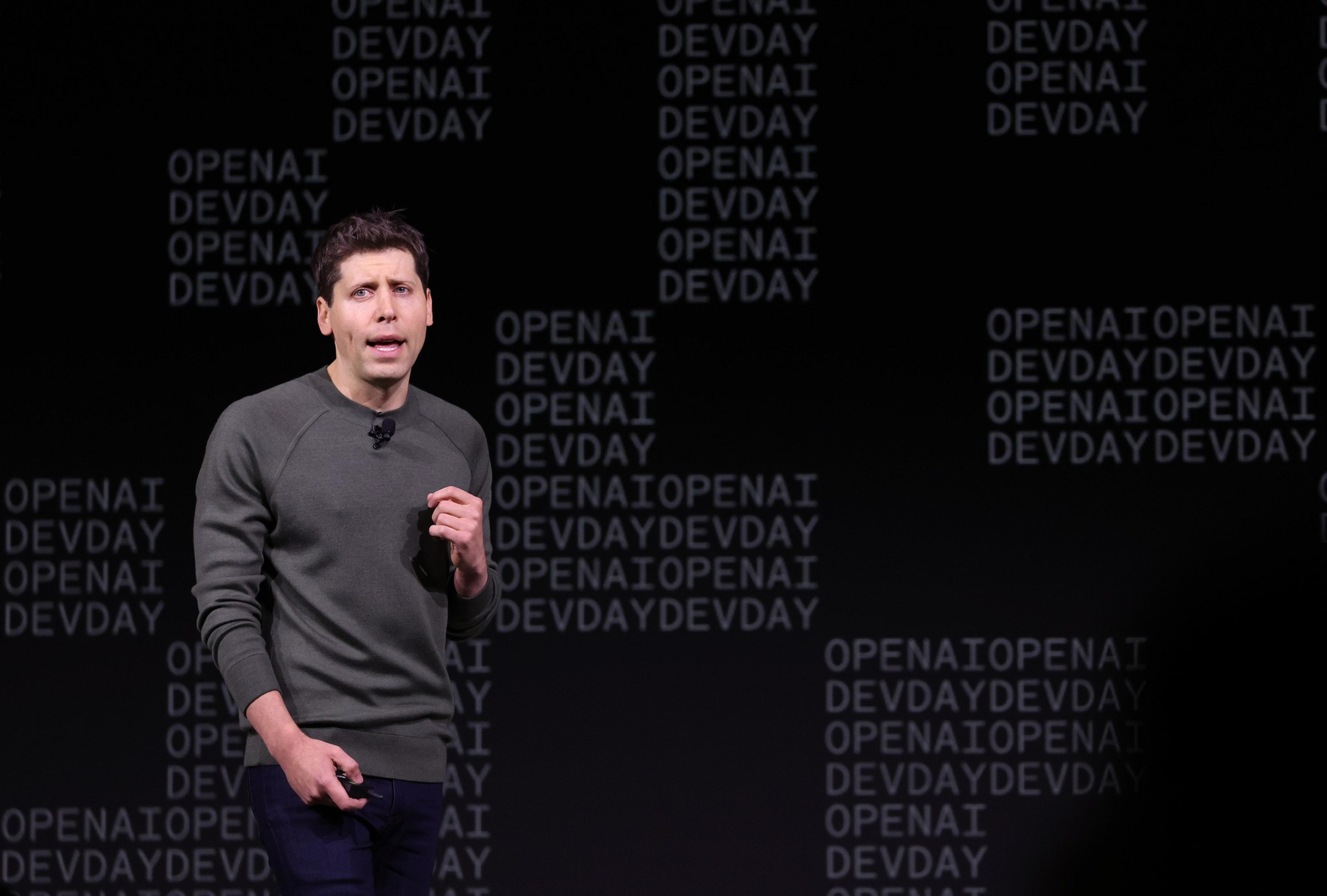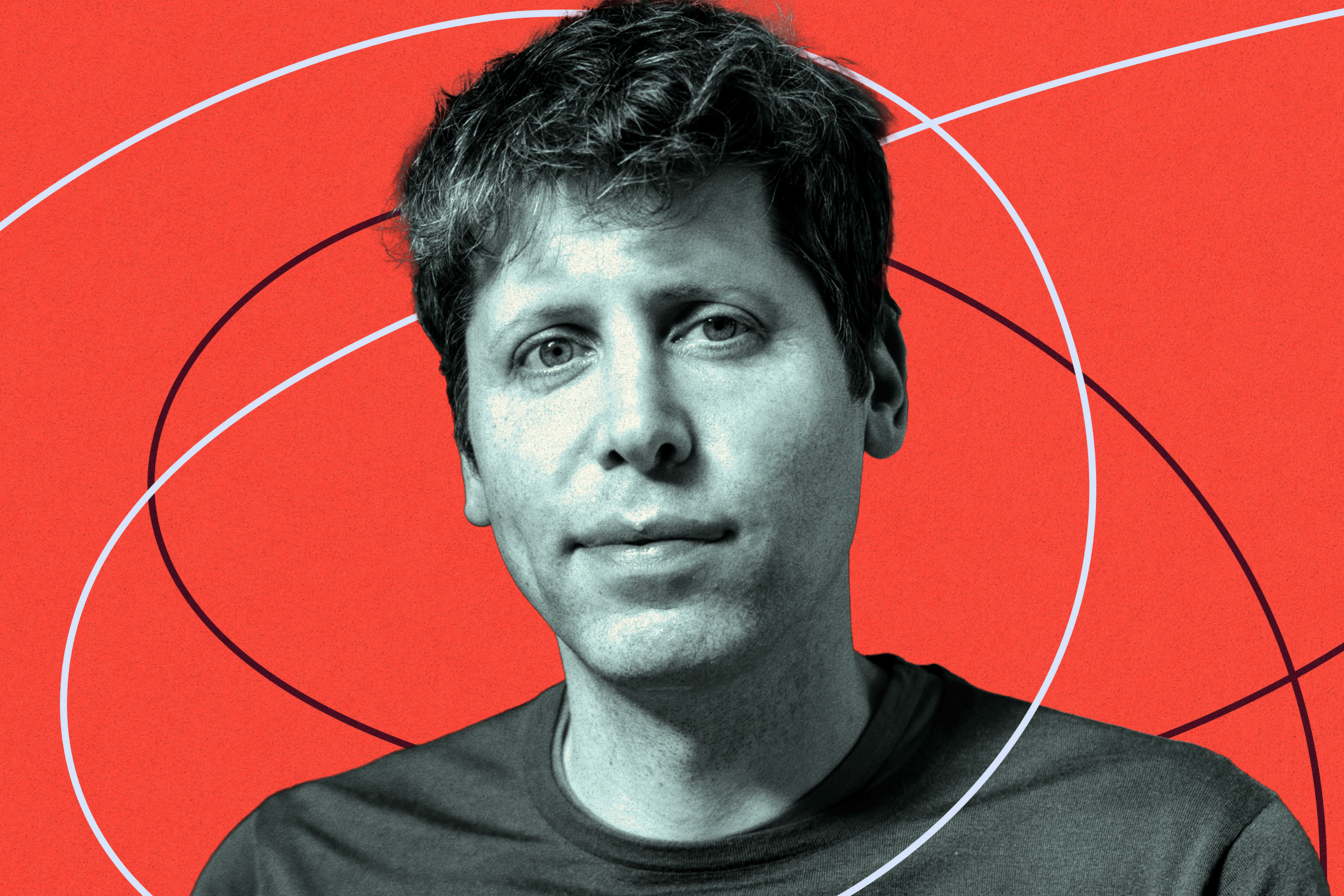OpenAI has reshaped the tech industry—and to a lesser extent, San Francisco—in its own image. So it’s little surprise that the AI giant has used the city as the backdrop for its inaugural developers’ conference, known as DevDay.
OpenAI CEO Sam Altman began the conference with a splash: ChatGPT has already amassed 100 million weekly active users in the year or so since it launched to the world. For comparison, it took Facebook more than four years to hit that mark. Other stats it touted? Two million developers on the platform and 92% of Fortune 500 companies building off of OpenAI products.
“OpenAI is the most advanced and the most widely used AI platform in the world now,” Altman said, boasting that the hype came entirely from word of mouth.
The event’s hourlong keynote was clearly aimed at the developers in attendance, but Altman’s team presented some glimpses of OpenAI’s future for the general public. Here are four key themes from the event.
Models Going ‘Turbo’
OpenAI’s conference was pegged to the launch of “Turbo” versions of its large language models, GPT-4 and GPT-3.5, for developers.
GPT-4 Turbo is already out to the world in a developer preview mode and is not only more powerful but around three times cheaper than its baseline GPT-4 model. The product is priced via tokens—basically, how ChatGPT’s language models process text. A thousand tokens is equivalent to around 750 words. The Turbo model can accept inputs of up to 300 pages in length, meaning entire books can be ingested.
The most significant update, however, is that this new Turbo version of GPT-4 is trained from web data until April 2023 rather than January 2022. Altman promised to never let its training data get that “out of date again,” for better or worse.
A Microsoft Love-Fest
Microsoft CEO Satya Nadella flew in as a special guest to have an onstage chat with Altman about their partnership. It makes sense. The Redmond, Washington-based tech giant has put some $13 billion in OpenAI, its largest investment ever by far.
“We love you guys,” Nadella said with a chuckle. “It’s been fantastic for us.” (Altman responded with a quiet “Aw.”)
Nadella didn’t stick around for long—less than five minutes—but his cameo signified what has become one of the most lucrative AI partnerships in the industry.
Microsoft aims to continue inserting OpenAI’s tech across its expansive product suite—and to position itself as a viable competitor against Google, especially in search. (Even though Bing’s search hasn’t snagged substantial market share, Google’s forays into AI haven’t made much movement, either.)
And it’s clear what value Microsoft brings to the table for OpenAI’s grand-scale ambitions.
“I’m excited for us to build AGI together,” Altman said.
An App Store for Chatbots
Altman emphasized the importance of giving the masses control over OpenAI during DevDay. Crucial to that, it seems, is getting more non-programmers into the fold.
For general users, there’s a new product being released called GPTs—chat agents that users can customize to suit their own needs. Altman also confirmed the existence of a GPT Store—a way for users to buy and sell these bots in a marketplace, complete with a revenue share. (One has to wonder if Meta, which just launched its own celebrity-heavy chatbot suite and buzzy chatbot startup Character.ai, is worried about this announcement.)
For developers, OpenAI has launched Assistants API—a way for programmers to set up OpenAI-based assistants into their own products more easily. It has features built-in, like a code interpreter, to speed up the process for developers.
“Over time GPTs and Assistants, our precursors to agents, are going to be able to do much, much more,” Altman said. They’ll “plan and perform much more complex tasks” with little to no coding skills necessary.
Safety Concerns and Lawsuits
AI safety seems to be top of mind for the company—and for its partners. Those anxieties, no doubt, were exacerbated by the ongoing crisis in Israel and Palestine—where AI misinformation reportedly (opens in new tab) abounded (opens in new tab).
Throughout the keynote, Altman repeated the term “gradual iterative deployment”—a phrase seemingly tailor-made to suggest it’s slowing down just a bit despite the new developments. Nadella also mentioned safety as a top priority during his appearance.
To a lesser extent, it seems like OpenAI—like other generative AI developers—is also concerned about lawsuits hampering ChatGPT use and development. (In September, a group of authors (opens in new tab) sued OpenAI for allegedly training on their work—one of a number of lawsuits that could have serious ramifications for the company, its users and its business model.)
Altman announced a program called Copyright Shield, where the company will pay the legal costs incurred by users accused of copyright infringement. The hope, it seems, is to keep people using and making products for OpenAI despite that risk.
“We believe that AI is going to be a technological and societal revolution,” Altman said. “It will change the world in many ways, and we’re happy to get to work on something that will empower you to build so much for all of us.”

